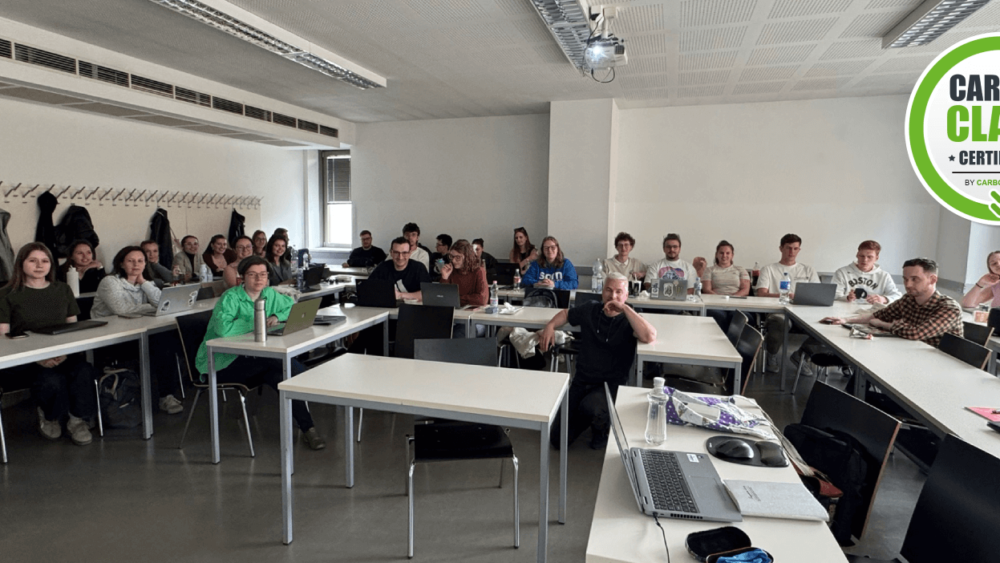I was lucky enough to be part of a CarbonClass interactive workshop organised by Carbon.Crane this semester. The three-hour training provided me with unique, practical knowledge that was not only valuable to me professionally, but also transformational in terms of my daily habits.“I knew, but I didn’t suspect”György Huszics, one of the co–founders of Carbon.Crane, used these words to illustrate the uncertainty surrounding the digital carbon footprint. Even before the training, I was aware of the impact of online platforms and digital tools on the planet: server farms that require huge amounts of resources and highly polluting battery factories are vivid in all our minds. Recently, the press has also been reporting more and more on the alarming environmental consequences of artificial intelligence. However, we are less likely to consider the carbon footprint of images, videos, or even social media use. Strength in unityI was very keen to hear new ideas during the training, even challenging the existing narrative. For example, Gyuri pointed out that companies that appear to be sustainable often put significantly more effort into maintaining appearances than protecting our environment — although greenwashing is now a widely used term, it was a surprise to me that companies are not only greenwashing themselves through their marketing strategy, but are also circumventing green strategies and regulations at many different points of their corporate operations. Of course, there were also positive examples: fortunately, more and more companies are taking real steps towards sustainability, and it would be a shame to obscure them with communication gimmicks. to acquire the knowledge that will facilitate real change. By becoming more aware than the generations before us, we can not only take small steps in our daily lives to help our environment, but also shape our world as future decision–makers and leaders. Theory meets practiceThe workshop was highly interactive, making the three hours fly by. Before we started the deep dive, we had the chance to assess our existing knowledge of sustainability with a Kahoot quiz — I was very proud of myself, as I finished in the top three. We also took a psychological test on eco-anxiety, which showed us how our stress level about the state of our environment and our future compares to the Hungarian average (my numbers were through the roof, although I’m not surprised to be honest). After the theoretical grounding, we were able to try out Carbon.Crane’s tools and analyze some websites in groups. Seeing the huge differences in emissions across different pages and learning how a few conscious decisions and small changes could drastically reduce carbon emissions was fascinating. for a moment. At the end of the training, we tested our knowledge with a questionnaire: I scored 22 out of 25, successfully completing CarbonClass and receiving a certificate of recognition. I’m grateful to the Carbon.Crane team and my instructors for giving me the opportunity to take part in this exciting afternoon. I’m confident that the training is just the beginning and that we will continue to learn about the importance of reducing our digital carbon footprint. I highly recommend this training to all my fellow students. Whether your interests lie in biology, chemistry, computer science, or social sciences, you will find it useful and valuable. |








Comments are closed.